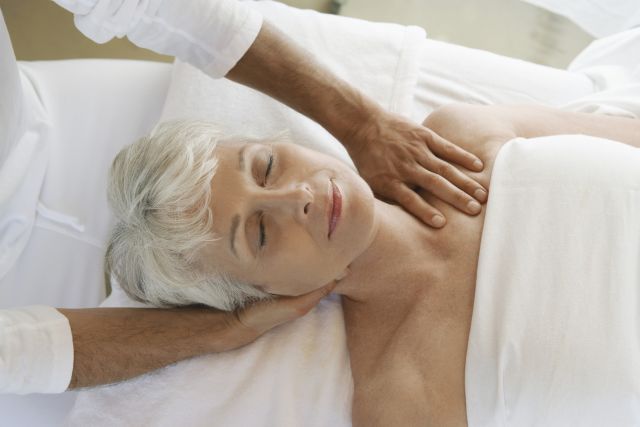Did you know that your emotions can affect your joint health? It's true. Negative emotions like chronic stress, worry, and anxiety not only reduce your quality of life but also may make your joint pain feel worse.
And if you've got osteoarthritis, your body already has plenty to deal with without weathering the added burden of a lousy mood. So the next time you struggle to get out of a chair or mount a flight of stairs, think about ways to turn around those feelings of frustration, anxiety, or sadness.
Here are a few highly effective stress-quelling strategies you may want to try. Talk them over with your doctor.
Tools to help you cope
Massage: If you've ever treated yourself to a therapeutic massage, you already know how wonderful it feels. But it's a top-notch stress soother, too. In fact, studies suggest that massage can relieve both musculoskeletal pain and the emotional stress that may come with it. Massage has even been shown to reduce blood pressure in some people. Just get some input from your doctor first to make sure the method you choose won't exacerbate joint pain or inflammation.
Yoga: Devotees regularly report a sublimely delicious state of deep relaxation after practicing yoga. And studies suggest that the stretching and strengthening benefits derived from yoga—especially lyengar yoga—may also help with pain and disability from osteoarthritis of the knee.
Tai chi: This ancient Eastern exercise has long been called a "moving meditation," and although more study is needed, research suggests that tai chi may reduce pain and improve physical function in people with knee OA.
Walking: Don't buy into the myth that regular exercise worsens osteoarthritis. Nothing could be further from the truth. But that doesn't mean you should be playing ice hockey or running marathons. Low-impact forms of exercise, like a brisk walk or a bike ride in the park, will nourish the cartilage in the joints as well as your mood. You need just 30 minutes of moderately intense exercise to up the production of feel-good brain chemicals in your brain.
Progressive muscle relaxation: This quick and convenient stress-reducer is especially great for tight budgets and schedules. All you need is a few minutes to ease pain and stress with this activity. And it's free.
Meditation: Research suggests that Zen and other forms of mindfulness meditation may help alleviate chronic pain and the emotional uneasiness that comes from dealing with pain.
Guided imagery: Think of your muscles relaxing and unfurling like ribbons. Guided imagery like this can be a powerful tool in quieting negative thoughts and feelings and replacing them with positive ones. A moment or two each day may be all you need. Find your happy place in your mind, and go there often.
Talk therapy: Cognitive behavioral therapy and other forms of one-on-one or group counseling can help alleviate anxiety and depression—whatever their underlying cause may be. Ask your doctor for a referral.
Take Your Joy Back
Whatever the state of your joint health, your mind is a powerful tool that can help you not only cope but thrive, too. So stay focused on the things that make you feel good, inside and out. If you find yourself struggling emotionally despite your own best efforts, talk to your doctor about your medical treatment options.






